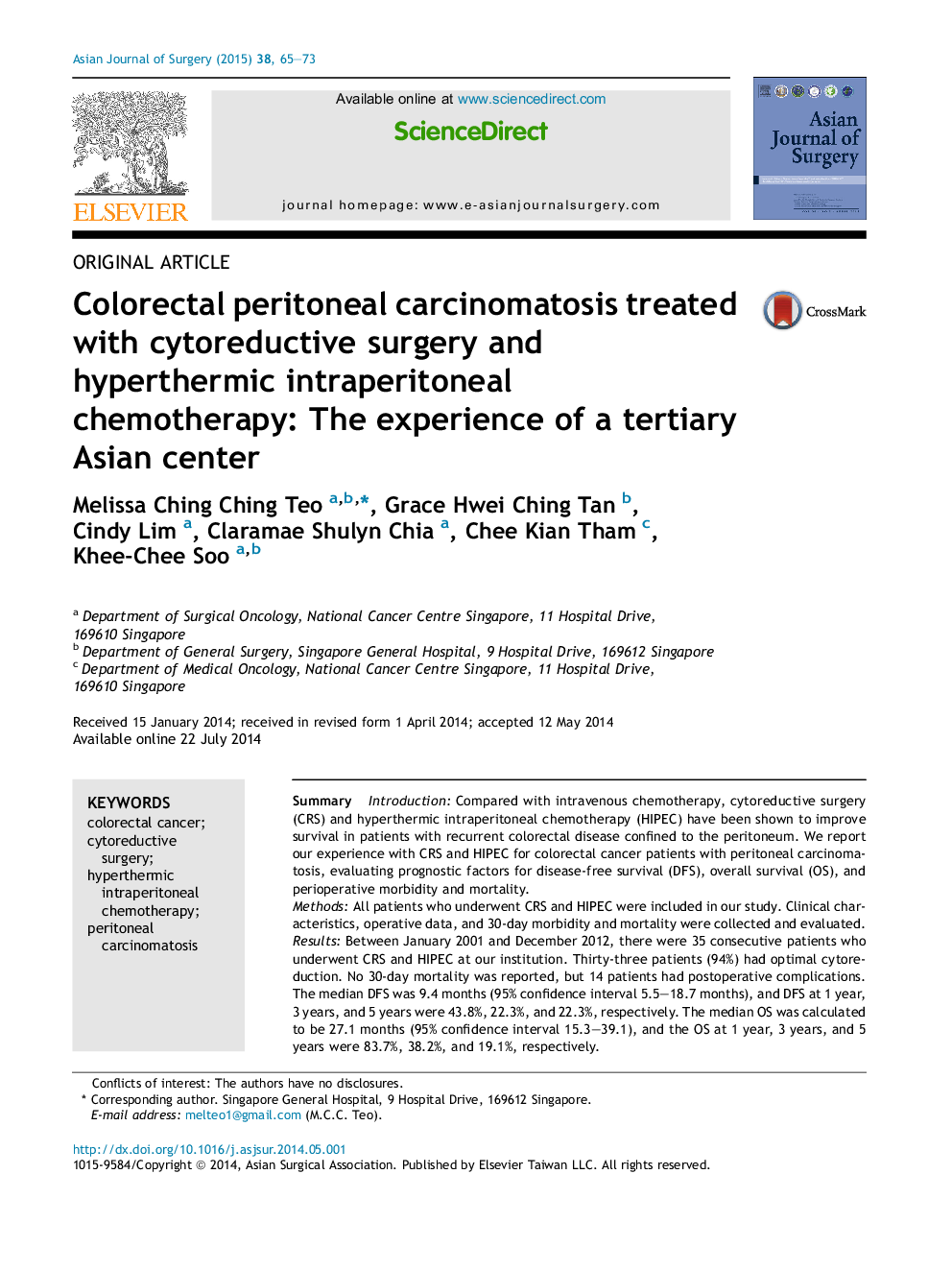| Article ID | Journal | Published Year | Pages | File Type |
|---|---|---|---|---|
| 4282723 | Asian Journal of Surgery | 2015 | 9 Pages |
SummaryIntroductionCompared with intravenous chemotherapy, cytoreductive surgery (CRS) and hyperthermic intraperitoneal chemotherapy (HIPEC) have been shown to improve survival in patients with recurrent colorectal disease confined to the peritoneum. We report our experience with CRS and HIPEC for colorectal cancer patients with peritoneal carcinomatosis, evaluating prognostic factors for disease-free survival (DFS), overall survival (OS), and perioperative morbidity and mortality.MethodsAll patients who underwent CRS and HIPEC were included in our study. Clinical characteristics, operative data, and 30-day morbidity and mortality were collected and evaluated.ResultsBetween January 2001 and December 2012, there were 35 consecutive patients who underwent CRS and HIPEC at our institution. Thirty-three patients (94%) had optimal cytoreduction. No 30-day mortality was reported, but 14 patients had postoperative complications. The median DFS was 9.4 months (95% confidence interval 5.5–18.7 months), and DFS at 1 year, 3 years, and 5 years were 43.8%, 22.3%, and 22.3%, respectively. The median OS was calculated to be 27.1 months (95% confidence interval 15.3–39.1), and the OS at 1 year, 3 years, and 5 years were 83.7%, 38.2%, and 19.1%, respectively.ConclusionCRS and HIPEC can provide survival benefit, with reasonable morbidity and mortality for Asian patients with peritoneal carcinomatosis from colorectal cancer. Patient selection and perioperative management of the patients are key to the success of the procedure.
